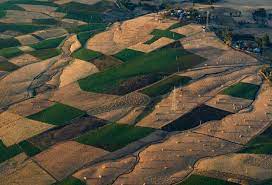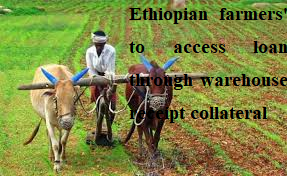
With about 6 million hectares of land suitable for tea production in Ethiopia, particularly in Gambella, Jimma, Kaffa, Wollega, Illubabor, and some parts of the Amhara region, the government is capitalizing on this advantage by launching policies and plans to achieve the potential of the product, despite challenges in the field.
“Whether black or green, Ethiopian tea is one of the perennial beverage favorites across the world. Because it grows under scrutiny by the government which supervises its cultivation, it easily passes Global Food Agricultural Practices (GAP) certifications. Shay does better in the tropical weather of Ethiopia where there is no winter than in other Asian competitors,” reports of Selina Wamucii indicated.
Selina Wamucii is an agricultural company and social enterprise that markets produce from smallholder farmers by integrating with cooperatives, producer organizations, agro-processors, small and medium enterprises, and other organizations that work directly with family farmers. Currently, it is working in Ethiopia, Kenya, Uganda and other African countries.
According to its document, Ethiopian tea is an award-winning primary tropical produce that thrives in the mildly cool, tropical weather of the Rift Valley. For this reason, the Gold Star-prize recognized scented black and green tea is a year-round season.
“Ethiopia’s overall economic and social development is highly dependent on the growth and development of the agriculture sector which contributes almost half of the GDP, employs about 85 percent of the labor force, accounts for about 75 percent of the foreign exchange earnings, and provides livelihood for over 80 percent of the population living mainly in rural areas,” the document elaborated.
Since Ethiopian Government made agriculture its primary priority decades ago, the country has developed and implemented its Agricultural Development Led-Industrialization (ADLI) strategy. The key concept underlying ADLI is an export-led development strategy aimed at promoting economic growth in Ethiopia while coordinating agricultural and industrial development. As export diversification and import substitution program in the country, tea is one of the strategic crops with significant importance in the national economy.
The reform government has also given due emphasis to the sector in order to intensify its production and productivity by subsistent farmers and large scale farming. Despite some challenges, the government, particularly the stakeholders are following up and supporting the sector for further export potential.
As a result, The House of Peoples Representatives Standing Committee on Agriculture Affairs has criticized ministry’s responsible institutions for ducking out important attention to tea producers and tea-producing farmers.
The Standing Committee observed the work being done in the field. The committee also listened to the Coffee and Tea Authority and Cooperative Commission’s nine-month performance report of the current Ethiopian fiscal year. On this basis, the Standing Committee Chairperson Solomon Lale noted that the focus on tea production has been neglected. As to him, it has not been possible to ensure the benefit of the farmers in tea production. The committee particularly made field observation on one of the tea producer Wush Wush tea, found at Kaffa Zone of the South West Ethiopia Peoples’ Region.
Based on its observation, the committee underscored that the old and single working machine that the company uses is a major factor for the sector is harming the tea producers as well as the production.
Mentioning that the company by itself is very profitable, the committee explained that small-scale tea producers are not benefited while compared to their capacity to produce and income to earn. Owing to this weak market situation, the tea farmers are required to provide a kilo of export standard product with a price of six Birr and for home tea by four Birr to the factory.
As a result, the farmers are complaining. Moreover, the farmers do not have the technology to store the product if there is a power outage or if the factory does not accept the product. This can easily lead to product damage, the chairperson noted.
Noting that tea is one of the most profitable sectors in the country as it can be harvested twice a week, members of the standing committee pointed out that the farmers’ interest to get the industry in order to produce by themselves.
In the report, it was also stated that there is a gap in supporting the institutions and that the agro-safety tea processing also claimed its grievance that its office need a high attention and follow up by either the Ministry or the concerned stakeholders. As a result, it was stated that the country is not getting what it deserves from this sector.
The Ethiopian Press Agency had approached the respondents regarding their thought about the case. As a result, Cooperative Commission Commissioner Frealem Shibabaw said that the commission had previously focused only on coffee.
Acknowledging the decision by the Standing Committee to focus on tea production and producers, she accentuated that her office was ready to address the gaps in the sector. In the future, the same support will also be provided to tea growers like that of the coffee producers, she said.
The Ethiopian Coffee and Tea Authority believes that the criticism raised by the Standing Committee regarding less attention to the tea production was proper. The Authority’s Director General, Adugna Debela (PhD) said that the problem is lack of conducive environment to the production of tea, especially for smallholder farmers. He said work has started since the day the committee gave its recommendation to further benefiting the farmers out of their tea production.
The Director General further elucidated that discussion forum is taking place among agricultural experts, farmers and tea leaf receivers in a way to provide support to the sector and to adjust the selling price of tea for farmers.
Also known as Shay in Amharic, Ethiopian tea (Camellia sinensis), especially green tea is a major organic crop from the highlands of the south and south-west. The country relies on mostly private farming agencies that the government supports to produce home and export tea, it was learnt.
Approached by The Ethiopian Herald, Melaku Addisu, a Private Agricultural Researcher said that tea is one of the most important cash crops of many countries, including Ethiopia. As to him, tea is the most widely consumed stimulant beverage worldwide followed by coffee, and accounts for about 46 percent of the world’s beverage market. It is served as morning drink for nearly two-third of the world population.
“Of the different tea types; white, yellow, green, oolong and black tea are the major ones prepared and marketed in the world. In Ethiopia, tea is grown in the highland areas that can offer ideal climatic conditions and soil types for production and processing of good quality tea for export and domestic consumption”.
He further mentioned that Tea is also an important crop in terms of job creation and income generation. As it is a labor intensive commodity, it provides employment opportunity particularly for rural community. It is also important for export earnings and rural infrastructure development, he added.
According to Melaku, out growers should be trained and supported by research centers. The high cost of tea production due to intensive use of fertilizer and hired labor, reduced revenue from tea sales. Therefore, cost saving strategies should be highly addressed. These are, technology use like simple hand harvesting machine and hired labor management to increase labor efficiency. Tea production needs intensive inputs such as fertilizer and labor particularly during harvesting.
Noting that they will also lack capital to expand tea farm land, he recommended the need to strengthen out growers by facilitating credit access and debit management services. Government and private investors should be well coordinated to develop a broader approach that can effectively address challenges facing tea out growers.
It needs to encourage the out growers in tea farming activities by attracting them with farming related incentives such as subsides and reasonable farm gate price. Thinking about the necessary opportunities gained from the sector, both foreign and home investors should work in unison with the government to support the tea farmers and themselves as well.
BY HIZKEL HAILU
The Ethiopian Herald 15 May 2022





